Cargando...
Recursos educativos
-
Nivel educativo
-
Competencias
-
Tipología
-
Idioma
-
Tipo de medio
-
Tipo de actividad
-
Destinatarios
-
Tipo de audiencia
-
Creador
-
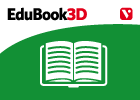
Living things - Living things
EduBook Organización
- 1 lo usan
- 6169 visitas
Living things are born, they eat, they interact with each other, they reproduce and they die. Non-living things are not born, they do not eat, they do not interact with each other, they do not reproduce…
-

Our distant past
EduBook Organización
- 6087 visitas
The things that happened a very long time ago, happened in the distant past. We know about them because we can see many remains from the past, like monuments, buildings or paintings. Since human beings…
-
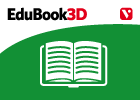
Summaries - The Renaissance and The Reformation
EduBook Organización
- 5982 visitas
1. Humanism Humanism was a cultural movement that began in Italy in the 15th century. Its main characteristics were: A belief in the importance of the human being as the only species with reason and…
-
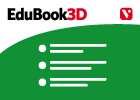
Machines and structures
EduBook Organización
- 5840 visitas
In this unit we will look at electrical circuits, generators and motors that work by magnetism. We will also look at the machines and tools which help us do our work. Finally, we will look at…
-
True/False. The nervous system
EduBook Organización
- 5828 visitas
Are these sentences true or false? The central nervous system consists of two organs: the brain and the spinal cord. The brain is also called the cranium. The human nervous system has two main parts:…
-
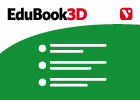
The five senses
EduBook Organización
- 5693 visitas
We use our senses to find out information about the world around us. Human beings have five senses: touch, sight, hearing, taste and smell. We use different parts of our body for each sense. These body…
-
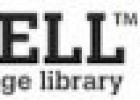
Biblioteca d'imatges de la cèl·lula
Irene Salomé Martínez Pérez Docente
- 2 lo usan
- 4733 visitas
The Cell: An Image Library™ is a freely accessible, easy-to-search, public repository of reviewed and annotated images, videos, and animations of cells from a variety of organisms, showcasing cell…
-
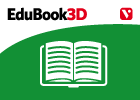
Prehistoric art
EduBook Organización
- 5484 visitas
Cave paintings Cave paintings are paintings on cave walls and ceilings. The oldest cave paintings date back to early Palaeolithic times. Caves with cave paintings were probably places of worship for…
-

Choose. The ozone layer
EduBook Organización
- 1 lo usan
- 5263 visitas
Consult the website about the ozone layer and choose the best answer to each question: Why is the ozone layer in the atmosphere important? Which types of substances destroy the ozone layer? Where are…
-
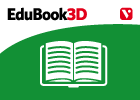
Introduction - The Renaissance and The Reformation
EduBook Organización
- 5389 visitas
The Renaissance and the Reformation In the 15th and 16th centuries, a new way of understanding the world developed, called Humanism. Humanism focused on human values and looked back to the classical…
Te estamos redirigiendo a la ficha del libro...












